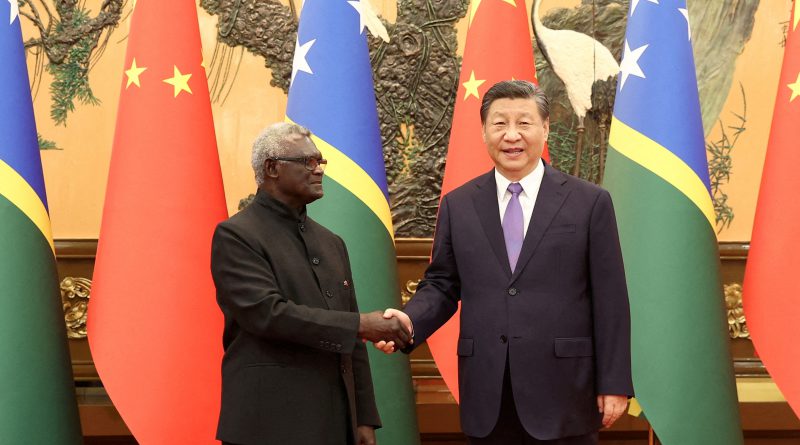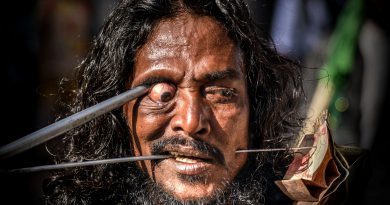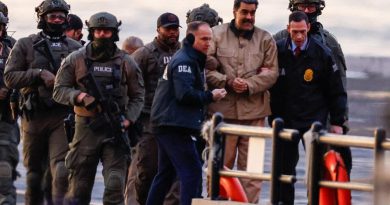Australia raises concern over Solomon Islands policing plan with China’s top diplomat
Sydney (Reuters) – Australia has raised China’s plan to take a policing role in the Pacific Islands nation of Solomon Islands in talks with Beijing’s top diplomat Wang Yi, Foreign Minister Penny Wong said on Friday.
The U.S., Australia, New Zealand and Solomon Islands’ opposition party have called for Prime Minister Manasseh Sogavare to “immediately” publish details of the policing deal signed in Beijing on Monday, amid concern it will invite further regional contest.
Sogavare has denied suggestions a Chinese police presence poses a regional security threat, and says China will enhance the capability of the Solomon Islands 1,500 police officers in cyber security and community policing.
“We take the view, along with all other members of the Pacific Island Forum… that security is best provided for within the Pacific family,” Wong told reporters in Jakarta, after meeting with Wang on Thursday evening.
“We understand that countries make their sovereign decisions, however the security of the Pacific is something that we all have an interest in, so we urge there to be transparency,” she added.
In a statement on Friday, Sogavare’s office said the Chinese police will add to the existing Australia and New Zealand policing support.
“Solomon Islands Government fails to see how the improvement of (Royal Solomon Islands Police Force) traffic control and management system in Honiara, provision of police equipment or the completion of the Forensic Autopsy Lab is a threat to the Pacific region peace and security,” it said.
Riots in the capital Honiara in 2021 exposed gaps in the islands’ policing, it said.
Australian and New Zealand police deployed to Solomon Islands in response to the anti-government riots at Sogavare’s request.
In the week before his China visit, Sogavare announced Australia’s security treaty would be reviewed.
Opposition leader Matthew Wale said in a statement “policing is different in democracies than in communist countries and democracies must uphold human rights and due process”.
The issue was the compatibility of Chinese and Pacific policing, said Meg Keen, director of the Lowy Institute’s Pacific Islands programme.
“It is critical how the equipment is used, particularly guns and water cannons,” she said.
On his visit to Beijing this week, his first since striking a security pact with China last year, Sogavare pledged support for China’s Global Development Initiative and Global Security Initiative policy, which pair Chinese infrastructure investment and security.
Solomon Islands has a population of 700,000, across an archipelago that occupies a strategic position in the Pacific Islands, and was pivotal to the U.S. move west across the Pacific to liberate the Philippines in World War Two.
Tensions over Taiwan have raised concerns in Washington and Canberra over China’s naval ambitions in the region.
“Our fear is that in the near future China’s interest will clash with U.S. influence and strategic interests in the region and we are right in the middle of it all,” opposition leader Wale added.



